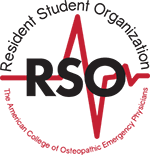Hospital Location: Reading, PA
Program size: 8 residents per year, with planned expansion
Program length: 3 years
Emergency department beds: Approximately 120 beds in the ER
ED visits per year: 136,000
Trauma center: Level 1 trauma center
Q&A with Program Director Dr. Kristen Sandel
Q: Any available Fellowships?
A: Not currently, because we are a newly accredited program. Once we have completed our initial accreditation phase, we hope to have several fellowships in place in the next two to three years.
Q: What part of your residency program apart from your residents are you most proud of?
A: Again, because we are a newly accredited program I am really proud of all the work and support from all our staff; our board from the hospital, nursing staff, core faculty, emergency physicians, and our program coordinator and assistant coordinator. We really could not have built our program without all the work of all our staff and all the support from all the other specialties and the community.
Q: Any big plans for the future?
A: We are really excited that our residency is based at Reading hospital, however Tower Health has acquired another 5 hospitals. This gives us the opportunity to have our residents rotate at those hospitals at different community sites. We also hope to expand the number of residency slots from 8 per year to at least 12 per year.
Q: what would you say is the hardest skill to master in the field of emergency medicine?
A: I think the most difficult thing that I see for incoming residents, medical students, and even young attendings is prioritization of tasks; making sure you know that the highest priority goes first and being able to prioritize the different treatments and dispositions of the patients.
Q: What would you say is your favorite thing about the area around the residency?
A: I grew up in Reading, so I think the best part about Reading Pennsylvania is that you have the best of all worlds here. It’s an urban environment set in a suburban setting with rural community around it. There is a variety of patient populations we see here as well as the different things you can do here. If you’re an outdoors person we have the Appalachian trail, but if you are into seeing concerts or sporting events we have pro sports teams and concerts coming in regularly. However, if you just want to have a house and a fence with a couple of dogs you can certainly do that here as well.
Q: What would you say is your #1 tip for a student interested in emergency medicine?
A: I think that just having the right attitude is the best tip. Coming in and being early, accepting the feedback you get from attendings, being humble, being compassionate, and listening to your patients are all critical. It all boils down to having the right attitude.
Q: What is a memorable experience you have of working with a student or from being a student?
A: When I first met one of our new general surgery attendings who recently came to practice at Reading, I went to introduce myself and welcome her to the hospital. She reminded me that she was a medical student of mine 8 years ago. I had forgotten, but it was great to see her succeed in her specialty, finish her medical training and complete her training in general surgery, and come back to practice at Reading Hospital where she rotated as a student for one month.
Q: What is your favorite shift to work?
A: I think probably most people will say day shift. But truthfully, I like to work morning shifts on Saturday or Sunday because it is a time that is not generally as busy. You get to talk to the physician staff, talk to the nursing staff, talk to the patient care assistants, talk to the medics and develop relationships with the people you work with every day. I think that’s as much fun as taking care of patients.
Q: What is your favorite meal/snack at 3 A.M. while working nights?
A: I am partial to peanut butter and graham crackers, and that’s my “go to”.
Q: Any other piece of advice or anything else you would like to share with students looking at your residency?
A: I think the key to being successful medical student and physician is working hard, having the right attitude, and staying humble. Also, be courteous and professional, while wearing your white coats proudly.
